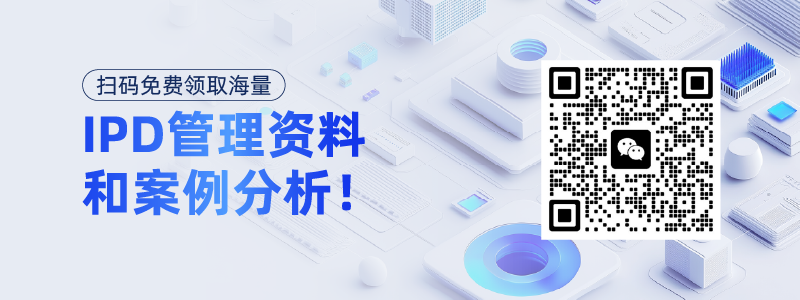1、 Challenges and opportunities in the e-commerce industry
- Intense market competition: With numerous e-commerce platforms and diverse consumer choices, how to stand out in the competition has become the key.
- Rapidly changing market demand: Consumer demands are constantly changing, with increasingly high demands for products and services.
- Supply chain management is complex: involving multiple links such as procurement, warehousing, logistics, etc. Any problem in any link may affect the entire operation.
- Rapid technological updates: It is necessary to constantly follow new technological trends and improve user experience.
- However, the e-commerce industry is also full of opportunities.
- Huge market potential: With the popularization of the Internet and the change of consumers' shopping habits, the scale of e-commerce market is expanding.
- The application of data analysis: Through big data analysis, it is possible to better understand consumer needs and optimize operational strategies.
Innovative business models such as social e-commerce and live streaming e-commerce continue to emerge, bringing new growth opportunities for enterprises.
2、 The Importance of Project Management in the E-commerce Industry
- Clear goals and directions: Through project management, the goals and directions of e-commerce projects can be clarified, ensuring that team members work towards a common goal.
- Optimize resource allocation: Reasonably allocate human, material, financial and other resources to improve resource utilization.
- Control project progress: Develop detailed project plans, monitor project progress, and ensure timely completion of the project.
- Improve quality and efficiency: Through standardized project management processes, improve project quality and efficiency, and reduce costs.
- Enhance team collaboration: Promote communication and collaboration among team members, improve team cohesion and combat effectiveness.
3、 Key links in e-commerce project management
Project initiation phase
- Clarify project goals and requirements: Communicate fully with relevant departments and stakeholders to understand the background, goals, and requirements of the project.
- Building a project team: Based on project requirements, assemble a project team with different professional skills.
- Develop project plan: including project schedule, budget, resource allocation, etc.
Requirement analysis stage
- Collecting user needs: Collecting user demands for e-commerce platforms through market research, user feedback, and other methods.
- Prioritize requirements: Determine the priority of requirements based on project goals and resource availability.
- Writing a requirements document: Describing the requirements in detail, forming a requirements document, and providing a basis for subsequent design and development.
Design and development phase
- Interface design: Design the user interface of e-commerce platforms, focusing on user experience and aesthetics.
- Functional development: Based on the requirements document, develop the functionality of the e-commerce platform to ensure its stability and reliability.
- Testing and optimization: Test the developed e-commerce platform, identify and fix issues, and optimize performance.
Online and Promotion Stage
- Preparation for launch: Conduct final checks and preparations before launching to ensure the stability and security of the e-commerce platform.
- Online release: Choose a suitable time to launch the e-commerce platform online.
- Promotion and Marketing: Promote and market through various channels to attract users to visit and purchase.
Operation and maintenance phase
Data analysis: Through data analysis, understand user behavior and needs, and optimize the operational strategies of e-commerce platforms.
Customer service: Provide high-quality customer service, solve user problems and complaints.
4、 Tools and Methods for E-commerce Project Management
Project management tools
- Gantt chart: used to develop project plans and monitor project progress.
- Agile development method: suitable for rapidly changing e-commerce projects, emphasizing team collaboration and iterative development.
- ZenTao and other project management software: helps teams with task management, defect tracking, and more.
Data analysis tools
- Google Analytics: Used to analyze website traffic and user behavior.
- Data visualization tool: Display data analysis results in intuitive chart form for decision-making.
Communication and Collaboration Tools
- Slack: A convenient and efficient internal communication tool for teams.
- Trello and other collaboration tools: used for task allocation and progress tracking among team members.
5、 Case analysis
Taking a successful project of an e-commerce enterprise as an example, analyze its experience and practices in project management.
- Project Background and Objectives: Introduce the background and objectives of the project, as well as the challenges it faces.
- Project management process: Describe in detail the management process of the project's initiation, requirement analysis, design and development, launch and promotion, operation and maintenance, and other stages.
- Project achievements: Display the results of the project, such as user growth, sales increase, etc.
- Experience summary: Summarize the successful experience and lessons of project management to provide reference for other e-commerce enterprises.
6、 Summary and Prospect
The development of the e-commerce industry is advancing rapidly, and the role of project management in the e-commerce industry is becoming increasingly important. Effective project management can achieve efficient operation of e-commerce projects and enhance the competitiveness of enterprises. In the future, with the continuous advancement of technology and changes in the market, e-commerce project management will also continue to innovate and develop, contributing to the sustained prosperity of the e-commerce industry.
ARTICLE TITLE :How to achieve efficient operation in e-commerce industry project management? ,AUTHOR :project management

















